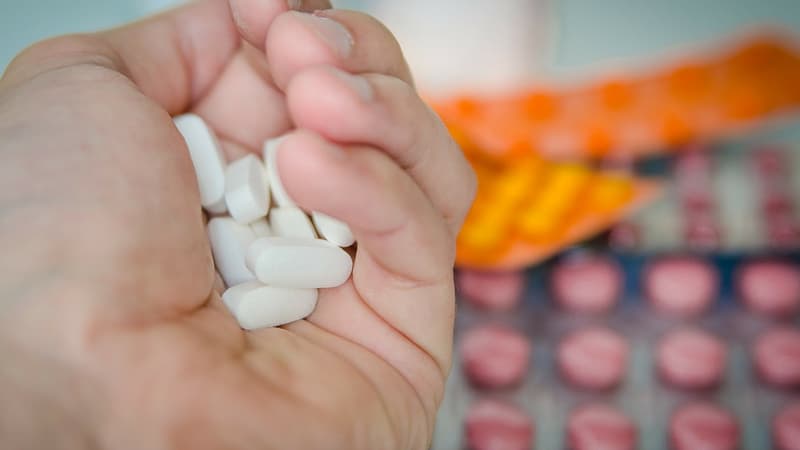Boxes of melatonin-based food supplements, which promise consumers better sleep, are rarely reminded that they are not recommended for certain people such as children, the consumer protection agency warned Wednesday.
The producers of these supplements practice “a very heterogeneous integration of recommendations for sensitive populations,” summed up the General Directorate for Competition, Consumption and Fraud Repression (DGCCRF), a government agency, based on the result of an investigation into some fifty of these products. .
Melatonin is a molecule produced naturally by the human body and which significantly regulates sleep rhythms. It is also present in certain food supplements that promise better sleep or help overcome jet lag. These claims are relatively supported by the current state of scientific knowledge, which admits a sometimes positive, but weak, effect of taking melatonin on sleep.
Pregnant, young, chronically ill…
Still, taking these supplements, available in France without a prescription, is not neutral, because they can be poorly tolerated and even not recommended for some people, as the health authorities (ANSES) pointed out a few years ago.
“The effects [néfastes, NDLR] reported are varied: general symptoms (headaches, dizziness, drowsiness, nightmares, irritability), neurological disorders (tremors, migraines) and gastroenterological (nausea, vomiting, abdominal pain),” the agency wrote in 2018.
These people include pregnant women, children and adolescents, and patients with chronic illnesses such as asthma or epilepsy.
However, many food supplements do not remind the buyer of this precaution, notes the DGCCRF. He also points out that melatonin is often mixed with other active ingredients, contrary to what is recommended by ANSES.
“The results of this survey generate a renewed call for vigilance on the part of the most sensitive consumers,” warned the DGCCRF, which strongly recommends that these patients consult a health professional before taking a melatonin-based supplement.
Pay attention to the recommended doses.
However, the agency acknowledges that most of these products do not have dosage problems: the melatonin level corresponds to what is marked on the label and does not exceed the limit recommended by ANSES: 2 milligrams per dose.
However, almost half of the boxes do not specify which doses are precisely those recommended for better sleep -1 milligram- and against jet lag -0.5 mg.
Source: BFM TV


